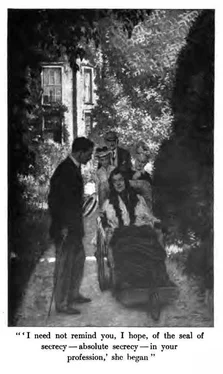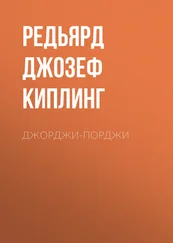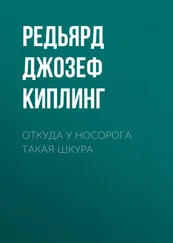Young Adam was not interested in our past except where it had touched his future. I think his mother held his hand beneath the table. Imam Din—shoeless, out of respect to the floors—brought him his medicine, poured it drop by drop, and asked for orders.
"Wait to take him to his cot when he grows weary," said his mother, and Imam Din retired into the shadow by the ancestral portraits.
"Now what d'you expect to get out of your country?" the Infant asked, when—our India laid aside we talked Adam's Africa. It roused him at once.
"Rubber—nuts—gums—and so on," he said. "But our real future is cotton. I grew fifty acres of it last year in my District."
"My District!" said his father. "Hear him, Mummy!"
"I did though! I wish I could show you the sample. Some Manchester chaps said it was as good as any Sea Island cotton on the market."
"But what made you a cotton–planter, my son?" she asked.
"My Chief said every man ought to have a shouk (a hobby) of sorts, and he took the trouble to ride a day out of his way to show me a belt of black soil that was just the thing for cotton."
"Ah! What was your Chief like?" Stalky asked, in his silkiest tones.
"The best man alive—absolutely. He lets you blow your own nose yourself. The people call him"—Adam jerked out some heathen phrase—"that means the Man with the Stone Eyes, you know."
"I'm glad of that. Because I've heard from other quarters" Stalky's sentence burned like a slow match, but the explosion was not long delayed. "Other quarters!" Adam threw out a thin hand. "Every dog has his fleas. If you listen to them, of course!" The shake of his head was as I remembered it among his father's policemen twenty years before, and his mother's eyes shining through the dusk called on me to adore it. I kicked Stalky on the shin. One must not mock a young man's first love or loyalty.
A lump of raw cotton appeared on the table.
"I thought there might be a need. Therefore I packed it between our shirts," said the voice of Imam Din.
"Does he know as much English as that?" cried the Infant, who had forgotten his East.
We all admired the cotton for Adam's sake, and, indeed, it was very long and glossy.
"It's—it's only an experiment," he said. "We're such awful paupers we can't even pay for a mailcart in my District. We use a biscuit–box on two bicycle wheels. I only got the money for that"—he patted the stuff—"by a pure fluke."
"How much did it cost?" asked Strickland.
"With seed and machinery—about two hundred pounds. I had the labour done by cannibals."
"That sounds promising." Stalky reached for a fresh cigarette.
"No, thank you," said Agnes. "I've been at Weston–super–Mare a little too long for cannibals. I'll go to the music–room and try over next Sunday's hymns."
She lifted the boy's hand lightly to her lips, and tripped across the acres of glimmering floor to the music–room that had been the Infant's ancestors' banqueting hall. Her grey and silver dress disappeared under the musicians' gallery; two electrics broke out, and she stood backed against the lines of gilded pipes.
"There's an abominable self–playing attachment here!" she called.
"Me!" the Infant answered, his napkin on his shoulder. "That's how I play Parsifal."
"I prefer the direct expression. Take it away, Ipps."
We heard old Ipps skating obediently all over the floor.
"Now for the direct expression," said Stalky, and moved on the Burgundy recommended by the faculty to enrich fever–thinned blood.
"It's nothing much. Only the belt of cotton–soil my chief showed me ran right into the Sheshaheli country. We haven't been able to prove cannibalism against that tribe in the courts; but when a Sheshaheli offers you four pounds of woman's breast, tattoo marks and all, skewered up in a plantain leaf before breakfast, you—"
"Naturally burn the villages before lunch," said Stalky.
Adam shook his head. "No troops," he sighed. "I told my Chief about it, and he said we must wait till they chopped a white man. He advised me if ever I felt like it not to commit a—a barren felo de se, but to let the Sheshaheli do it. Then he could report, and then we could mop 'em up!"
"Most immoral! That's how we got—" Stalky quoted the name of a province won by just such a sacrifice.
"Yes, but the beasts dominated one end of my cotton–belt like anything. They chivied me out of it when I went to take soil for analysis—me and Imam Din."
"Sahib! Is there a need?" The voice came out of the darkness, and the eyes shone over Adam's shoulder ere it ceased.
"None. The name was taken in talk." Adam abolished him with a turn of the finger. "I couldn't make a casus belli of it just then, because my Chief had taken all the troops to hammer a gang of slave kings up north. Did you ever hear of our war against Ibn Makarrah? He precious nearly lost us the Protectorate at one time, though he's an ally of ours now."
"Wasn't he rather a pernicious brute, even as they go?" said Stalky. "Wade told me about him last year."
"Well, his nickname all through the country was 'The Merciful,' and he didn't get that for nothing. None of our people ever breathed his proper name. They said 'He' or 'That One,' and they didn't say it aloud, either. He fought us for eight months."
"I remember. There was a paragraph about it in one of the papers," I said.
"We broke him, though. No—the slavers don't come our way, because our men have the reputation of dying too much, the first month after they're captured. That knocks down profits, you see."
"What about your charming friends, the Sheshahelis?" said the Infant.
"There's no market for Sheshaheli. People would as soon buy crocodiles. I believe, before we annexed the country, Ibn Makarrah dropped down on 'em once—to train his young men—and simply hewed 'em in pieces. The bulk of my people are agriculturists just the right stamp for cotton–growers. What's Mother playing?—'Once in royal'?"
The organ that had been crooning as happily as a woman over her babe restored, steadied to a tune.
"Magnificent! Oh, magnificent!" said the Infant loyally. I had never heard him sing but once, and then, though it was early in the tolerant morning, his mess had rolled him into a lotus pond.
"How did you get your cannibals to work for you?" asked Strickland.
"They got converted to civilization after my Chief smashed Ibn Makarrah—just at the time I wanted 'em. You see my Chief had promised me in writing that if I could scrape up a surplus he would not bag it for his roads this time, but I might have it for my cotton game. I only needed two hundred pounds. Our revenues didn't run to it."
"What is your revenue?" Stalky asked in the vernacular.
"With hut–tax, traders' game and mining licenses, not more than fourteen thousand rupees; every penny of it ear–marked months ahead." Adam sighed.
"Also there is a fine for dogs straying in the Sahib's camp. Last year it exceeded three rupees," Imam Din said quietly.
"Well, I thought that was fair. They howled so. We were rather strict on fines. I worked up my native clerk—Bulaki Ram—to a ferocious pitch of enthusiasm. He used to calculate the profits of our cotton–scheme to three points of decimals, after office. I tell you I envied your magistrates here hauling money out of motorists every week I had managed to make our ordinary revenue and expenditure just about meet, and I was crazy to get the odd two hundred pounds for my cotton. That sort of thing grows on a chap when he's alone—and talks aloud!"
"Hul–lo! Have you been there already?" the father said, and Adam nodded.
"Yes. Used to spout what I could remember of 'Marmion' to a tree, sir. Well then my luck turned. One evening an English–speaking nigger came in towing a corpse by the feet. (You get used to little things like that.) He said he'd found it, and please would I identify, because if it was one of Ibn Makarrah's men there might be a reward. It was an old Mohammedan, with a strong dash of Arab—a smallboned, bald–headed chap, and I was just wondering how it had kept so well in our climate when it sneezed. You ought to have seen the nigger! He fetched a howl and bolted like—like the dog in 'Tom Sawyer,' when he sat on the what's–its–name beetle. He yelped as he ran, and the corpse went on sneezing. I could see it had been sarkied. (That's a sort of gum–poison, pater, which attacks the nerve centres. Our chief medical officer is writing a monograph about it.) So Imam Din and I emptied out the corpse one time, with my shaving soap and trade gunpowder, and hot water.
Читать дальше












